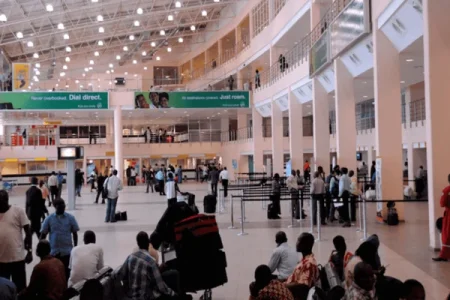
The Nigerian government has raised the contribution of aviation agencies to the Treasury Single Account from 40% to 50%, causing unrest among industry stakeholders. The policy threatens operational sustainability and safety standards, prompting calls for exemptions from the increased remittance to safeguard aviation services.
The Federal Government's recent decision to increase the contribution of aviation agencies to the Treasury Single Account (TSA) from 40% to 50% has sparked significant concern among industry operators. This policy, outlined in a December 2023 circular by Finance Minister Wale Edun, aims to enhance fiscal discipline and transparency but has been met with strong resistance.
The Federal Airports Authority of Nigeria (FAAN), Nigerian Airspace Management Agency (NAMA), and Nigerian Civil Aviation Authority (NCAA) are all affected by this increase. FAAN's Managing Director, Mrs. Olubunmi Kuku, expressed worry about managing 22 airports, 19 of which are financially unviable, while also meeting the new TSA requirements. NAMA's Managing Director, Engr. Farouk Ahmed highlighted that the higher deduction hinders the agency’s ability to maintain safety-critical equipment and meet international standards. Meanwhile, NCAA’s Director of Public Affairs, Mr. Michael Achimugu, pointed out that the increased remittance affects the agency's oversight and regulation capabilities.
Industry experts and unions, including the Air Transport Services Senior Staff Association of Nigeria (ATSSSAN), have criticized the policy, arguing it undermines the agencies’ ability to maintain infrastructure and ensure safety. They call for an exemption or adjustment to the policy to prevent further deterioration of services.
Despite the controversy, Special Assistant to the Minister of Aviation and Aerospace Development, Mr. Tunde Moshood, assured that safety remains a priority and efforts are ongoing to address the concerns of the aviation agencies.


![[VIDEO] Aliko Dangote Accuses NMDPRA Boss of Spending $5M on Children’s Swiss Education, Demands Probe](/data/attachments/226/226057-2521fd45085ee0c9849a32fd152cba73.jpg?hash=EiW_N4yAPp)

